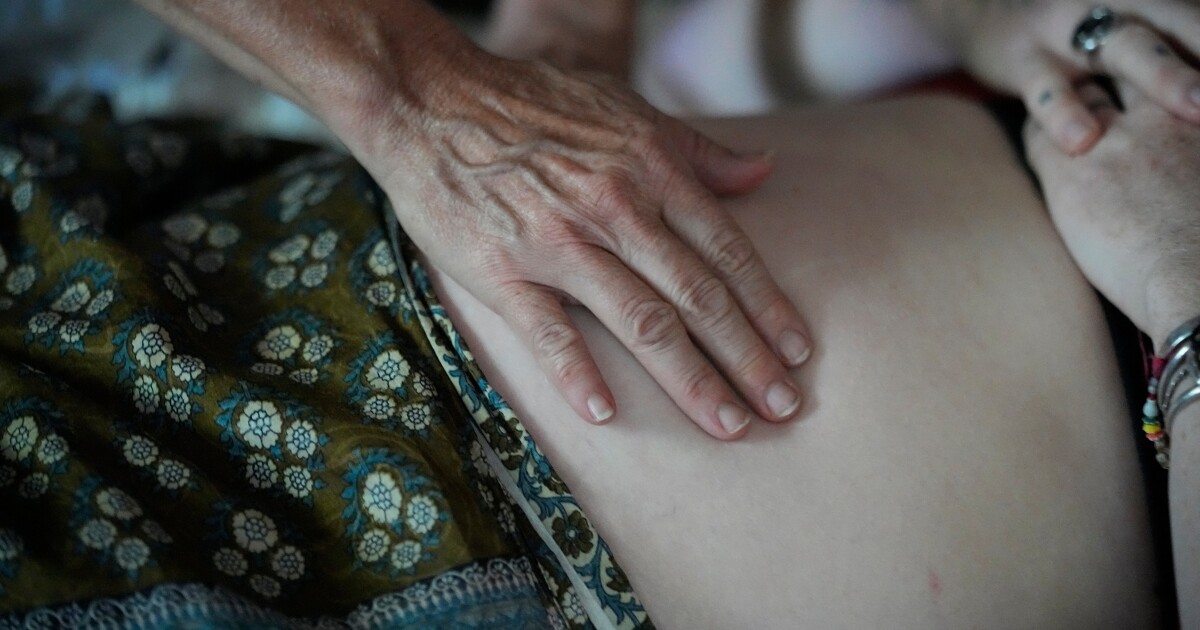A new bill in the Pennsylvania legislature is looking to give fathers a more active role in maternal and child health — an area advocates say has long excluded them.
The “PA Dads Matter Act,” introduced by state Rep. Aerion Abney (D–Allegheny), would direct the state’s Department of Health to launch a public awareness campaign highlighting the importance of father involvement during pregnancy and after birth. It would also create a grant program to fund community organizations that support fathers and families.
Abney, who represents parts of Pittsburgh, said the bill stems from both data and personal experience.
“First and foremost, I’m a husband. And I’m a father. I have two young boys that are now six and four. I vividly remember my wife, [when] we were going through our pregnancies, say ‘make sure the doctors are paying attention to me, that they’re listening to me if I have concerns’” Abney said.
“Basically she was saying, ‘I may not be in a position to advocate for myself. So I need you to be my advocate for me.’”
Abney says this moment was pivotal in making him realize the role of fathers in childbirth and parenthood.
Abney also said the bill was partly inspired by a 2024 Joint State Government Commission report on fatherhood engagement, as well as a federal Dads Matter Act introduced by Sens. Raphael Warnock (of Georgia) and Marco Rubio (former Florida Senator, now U.S. Secretary of State). That report found that when fathers are present during pregnancy, mothers have fewer negative health behaviors and babies are less likely to be born underweight.
Under Abney’s bill, health professionals would receive guidance on how to involve fathers in prenatal and postnatal care — including mental health screenings that are currently offered to mothers but rarely to fathers.
“When my wife was pregnant, no one ever asked me how I was doing emotionally going through the process,” Abney said. “We need to change that.”
The proposal has drawn strong bipartisan support in the state House, passing 198–5, and now awaits consideration in the Republican-controlled senate. Abney said he hopes the measure can move forward without partisan division.
“There are fathers on both sides of the aisle,” he said. “This should not be a partisan issue.”
For Arthur Terry, Fatherhood Coordinator at Healthy Start Inc., the bill marks a shift toward recognizing fathers as integral members of the maternal health ecosystem.
“What it does for dads is it establishes personhood in the maternal child health field,” Terry said. “This has been a space that has not been traditionally welcoming or excited to have fathers in it… It validates us. It’s self-affirming.”
Healthy Start has worked for decades with expectant parents in Allegheny County, especially in communities facing high rates of maternal and infant mortality. Terry said barriers like mistrust of the medical system, lack of education, and limited representation in health care settings often keep fathers from engaging.
“Many times gynecology offices, maternal offices, childbirth places, there’s no imagery, there’s no picture, there’s no literature, there’s nothing that indicates that the father is a relevant and important part of this process” he said.
He believes change is bilateral. “On the father’s side, we make ourselves more open to receiving information. And on the medical side, we make ourselves more open to providing it.”
Terry said a trauma-informed approach is especially important for fathers facing systemic barriers like unemployment, incarceration, or discrimination. He believes the key is ensuring that those working with families “walk like them, talk like them, live like them.”
“Similarity, I believe, many times breeds trust,” he said. “It starts with meeting people where they are. You have to make sure you’re hiring individuals that represent the community you are trying to address.”
Both Abney and Terry agree that success won’t come overnight — but that the goal is cultural change. In five years, Abney said he hopes to see more fathers attending prenatal visits, better maternal health outcomes, and healthier babies across Pennsylvania.
Terry says, “Success looks like a bit of a culture shift to me, where that engagement isn’t necessarily special; it’s expected.”

